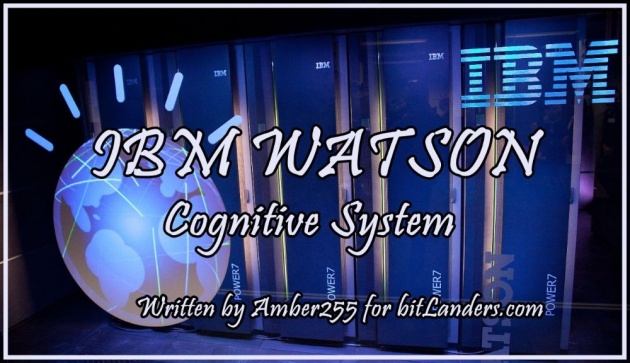
[Artificial Intelligence] How the IBM Watson Cognitive System Works - Photo credit: tynmagazine, edition by Amber255 via bitLanders
Practically every our action dependant on brain refers to cognition: understanding of languages, learning, social behavior, sensations, judgment, motor skills, and many others. And the most interesting that we expect similar cognitive behavior from the machines we use. Especially now when all around us we see machines with artificial intelligence.
The cognitive system or cognitive structure is a system of cognition based on artificial intelligence, formed as a result of its learning and accumulated experience. Previously, this concept was associated exclusively with a man and took into account the peculiarities of his character, upbringing, and knowledge about the world. Now, it is also related to the machines.
Now is the time when the supercomputer can be used by anyone who wants and has enough skills and knowledge. This can be done through a dedicated cloud computing service, which is already available to programmers working on software development for large arrays of unstructured information.
Cognitive computer systems like Watson eventually learn and adapt to situations rather than pre-programmed tasks. Therefore, it can be useful in a variety of fields - music, finance, medicine, cuisine, and the like.
IBM inventors created the Watson computer for four years. The company spent $ 6 billion on the invention. A computer can mimic a person's ability to understand questions or guess an answer. Today, people work with Watson in 45 countries and 20 industries. They make better decisions and improve their work. How can Watson help you?
IBM Cognitive computing concepts - Video credit: youtube
Cognitive Technologies Understanding
Cognitive technologies are the direction of the development of artificial intelligence systems. Their main task is to help people in making decisions in difficult situations. There are several industries and processes that require management with a huge number of changing parameters, complex dependencies, hard-to-predict results. In this case, decisions should be made in the mode of time close to real.
Credit:bitlanders
The simplest example would be electronic trading on the stock exchange or online shopping. For example, on popular shopping sites are often held promotions, when cheap goods appear for sale from a certain time. A person does not even have time to press a button, and the goods are already sold: automatic acquirement systems are activated. In the same way, buying and selling stocks on world markets is supported by systems that collect a huge amount of information from various sources and automatically make decisions about buying or selling certain stocks. A person makes a decision when he creates and trains this system.
In such a way, we get an understanding of clients and possible projects for which cognitive technologies are suitable. It fits for the large companies with a business where it is necessary to quickly and efficiently process large amounts of data, to find complex relationships, and dependencies, and by algorithms close to human thinking, to develop solutions that allow managers to quickly select the right actions.
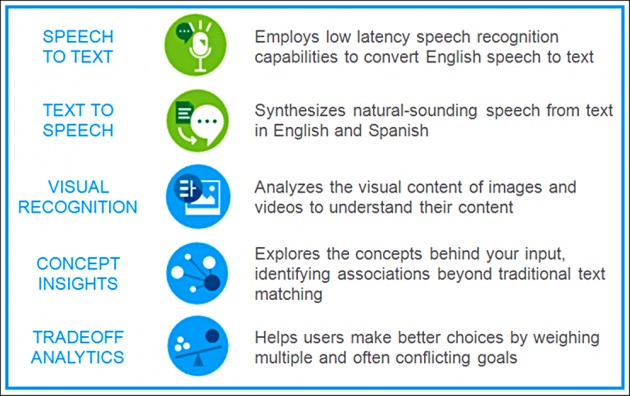
Five new services expand IBM Watson - Photo credit: developer.ibm
This is primarily large-scale production, where large resources and volumes of data are involved - both from technical systems and people' actions (oil industry, banks, construction, heavy engineering, etc.). These are also areas that require the development and understanding of a large amount of information about new developments, taking into account accumulated experience and high risks.
This refers to the field of medicine, social management. The price for medical decisions is human life, health. Here cognitive technologies are especially valuable. They provide specialists with abstract information on new achievements in the field of a specific medical field, help to choose the best treatment option for each patient, taking into account the history and specifics of his illness.
Now about specific projects. Today, several large companies are creating complex decision support systems. If we talk about foreign examples, the largest Australian oil company Woodside has created a knowledge base for its industry based on its own experience. This made it possible to solve a whole range of complex tasks - first, to increase the efficiency of the personnel’s work, to much speed up the training cycle, to use and replicate the experience of already implemented projects. There is a huge money-saving in a large company.
The direction of cognitive technologies is still very new, and therefore almost every day, new customers from different areas come to IBM and select the right toolkit from the range of IBM solutions.
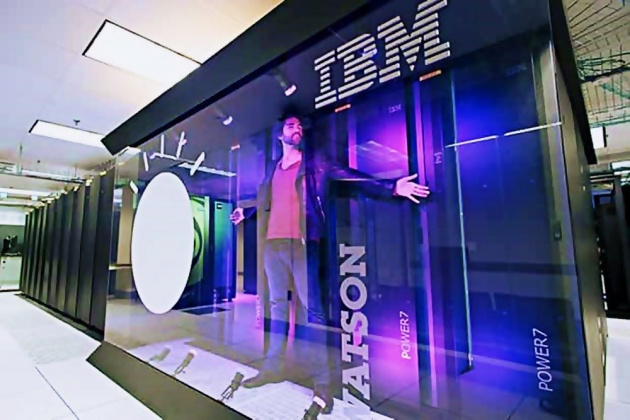
Cognitive computer system - Photo credit: csoonline
What IBM Watson Was Originally And Its Development
The very first Watson release was in 2011 at the game Jeopardy! Watson system was able to look for the answer to the question asked in the depths of the information contained in it. The distinctive ability of that system was that it has not the connection to external sources - neither to the Internet nor to anything else. It used only what had in its memory.
The most interesting thing is that thanks to the system's logic, the IBM computer ranked the possible answers and gave out the one where, thanks to its logic, it was sure of the greatest correctness.
In 2011, the Watson system won many other participants - people, and the gap between the system and the people was serious. And after this game, the question arose: “What next?”
The game - it is great! But what could be the further use of the system? Experts began to think about where Watson technologies can be used commercially, in which area of business, in which markets.
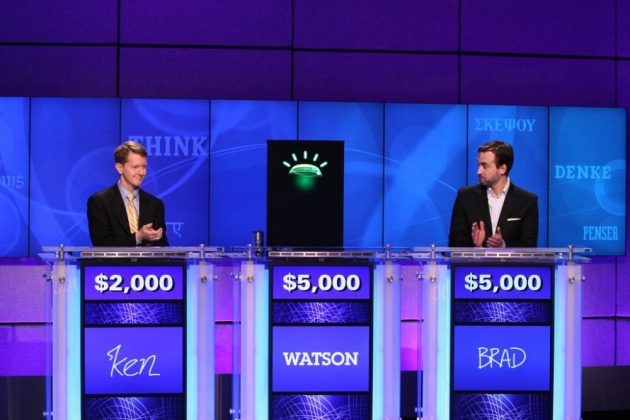
IBM Watson cognitive system - Photo credit: datacenterknowledge
The IBM company decided that Watson should be used where there is a large flow of textual unstructured information in natural language, and where a person needs an intelligent assistant. And they started working in the health sector.
Since the first triumph in Jeopardy, the IBM Watson supercomputer has come a long way. Through the work of company professionals focused on advancing the computer artificial intelligence, it is constantly gaining new abilities that enable the computer to be a medical-diagnostic, trade organization manager, financier, chef, university student, and many other incarnations.
The thing is that Watson, as we already know, can handle a huge amount of information. And, such as, in oncology, annually there are 500 thousand new scientific articles in various fields and research areas. And a living person cannot cope with such a mass of information. But after all, new materials in this area cannot be ignored; they must be processed intellectually, weighing, comparing, referring to previous experience.
We should not forget that this supercomputer, this wise system is created by very talented programmers, experts, linguists, and other masters of the artificial intelligence field.
Let's chat more about IMB Watson on Querlo Chat: Watson Assistant:
The Future Of IBM Watson
What tasks the system can solve in 5-10 years? What can it not do now, but soon the company's specialists plan to teach the system to do it?
The first is the creation of large knowledge bases at the private and state levels. Now all the leading countries of the world are concerned about it. They are very actively seeking to collect, process, and put on stream a system for extracting valuable information from a variety of sources. We see that this process goes on two main levels.
First - the level of large international companies with hundreds of thousands of employees, offices in different countries, and complex production. Here the main engine is gaining a competitive advantage. It is clear that projects of this level need serious investments, but they begin to pay off almost immediately, dramatically increasing work efficiency. The emphasis is on predictive analysis, which is provided by Watson technologies. A higher level is the state level when systems of accumulation and processing of knowledge are already created on a national scale and information from other countries. These are areas related to the development of science, technology, nation health, and social management.
IBM introduced its vision of how technological innovation will change the world in the future. The report was carried out by the research division of IBM Research and reflects the company's opinion on how the world will change in five years in five directions.
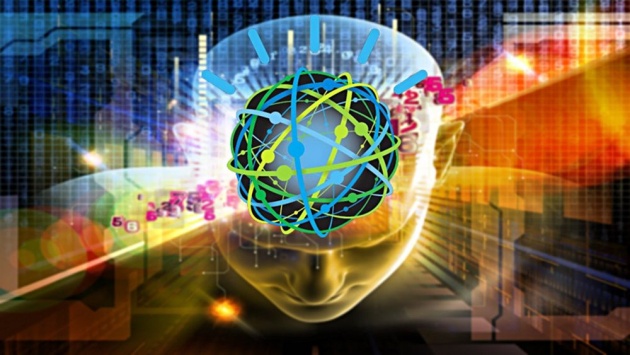
How IBM Watson works - Photo credit:meritalk
People will be able to gain supervision thanks to tiny and powerful cameras. It will make it possible to investigate almost 100% of the electromagnetic spectrum against less than 1% now. The technology can be embedded in mobile devices and help analyze the composition of products or drugs. In five years, we will be able to understand the complexity of the Earth with stunning precision of details. This will make possible to conclude the analysis of the parameters taken due to the development of the Internet of Things (IoT) and machine learning algorithms. It will help to predict such phenomena as climate change, water levels, threats of pollution or the influence of external factors on our planet.
The next direction in the development of technology, IBM sees the creation of medical laboratories on chips to track diseases at the nano-level, which will help to predict diseases at earlier stages. In IBM laboratories, specialists are working on creating chips of 20 nm in size, which can be connected to both artificial intelligence systems and other sensors in real-time.
And finally, the creation and distribution of smart sensors for earlier determination of the level of environmental pollution. Such sensors can also be extremely useful for gas pipes, as well as near natural sources of emissions, such as methane, for warning of increasing concentrations of various substances.
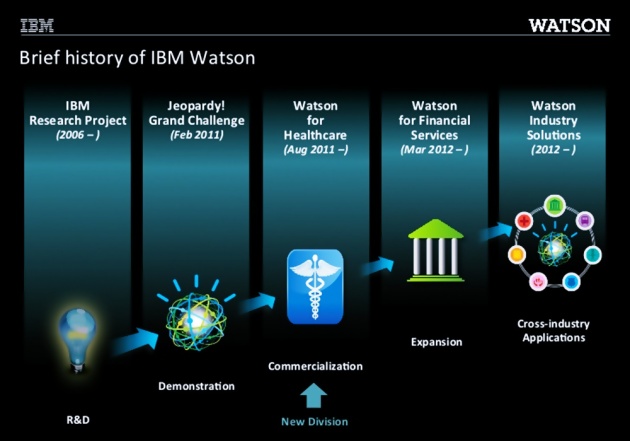
Watson development - Photo credit: emaze
It is worth noting that in all areas of technology are in development now, so the forecast does not look too futuristic. On the other hand, it takes time and effort to complete existing products and bring them to mass use.
From a long-term perspective (10 years or more), one can give an example of quantum computer technology. In the algorithm of quantum computers, there are completely different principles than those on which modern computers work. Therefore, their use can completely change existing processes, such as cryptography, and give a completely new level of computing power. IBM already gained the leaders' position in this field. It provides free test access to a real quantum computer via the IBM Quantum Experience cloud infrastructure.
What Professions Watson Is Going To Master In Near Future?
As for the professions of Watson, there are two aspects. The first is the expansion of the range of opportunities within already acquired occupations.
For example, in the field of medicine, Watson is used in the treatment of several cancers. But the specificity of medicine is that not only the types of diseases exist in huge numbers, but the patients themselves differ in their characteristics and the histories of their diseases.
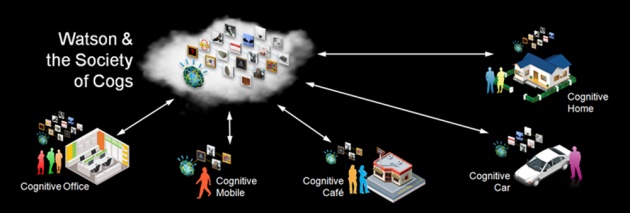
How IBM Watson works - Photo credit: greatlakescloud.wordpress
Therefore, the development is due both to an increase in the spectrum of curable diseases and due to the possibility of developing an increasingly detailed personalized treatment course for a particular patient.
The second is the mastering of other professions. Watson has already mastered the specialization of the oil industry: some foreign companies have introduced decision support systems for their oil industry specialists.
Another promising area is working with social groups and populations. These are also areas where information processing and development of services and offers for large groups of clients (hundreds of thousands and millions of people) are necessary.
Thus, the immediate development prospects are professions from the banking industry, telecommunications, where data volumes are incredibly large, and decisions need to be made in real-time.
The Future of Cognitive Computing - Video credit: youtube
IBM Cognitive Services' Artificial Intelligence
As for artificial intelligence, I would not give too serious a meaning to terminology. While science as a whole does not fully understand the methods of human thinking (and there are still a lot of white spots in this area), it is inappropriate to argue about what is artificial intelligence and what is not. We can say that the Watson system in 2011 passed a slightly modified formal Turing Test for the right to be called artificial intelligence.
The general idea of the test is simple: if a person, communicating with a system and asking it some questions in a free form, cannot distinguish if he communicates with a person or with a machine system, then such a system can claim to be artificial intelligence.
Having won the game Jeopardy, where it was necessary to answer questions from various fields of knowledge, Watson overtook the live participants and passed this test. But that's not the point. No matter how we call cognitive technologies, it is important that they fulfill their main task, become the “amplifier” of the mind when making complex decisions, both working and strategic.
Human memory is not limitless; training competent specialists in any industry is a costly and time-consuming task. Cognitive systems, however, create, as it were, such virtual professional consultants, to whose services everyone can turn. This is the core of artificial intelligence. It is important that the final decision on any issues remains for the person.
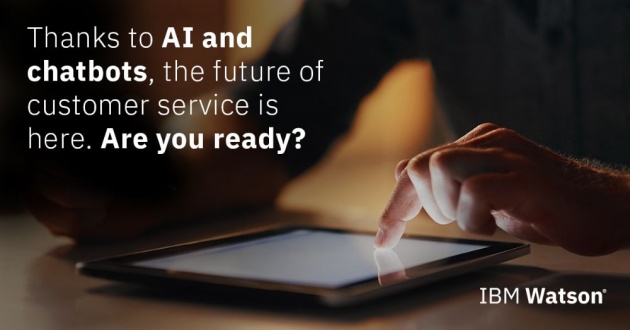
bitLanders AI-Themed Blogging: IBM Watson - Photo credit: ibm
In general, the cognitive system is designed to remove the routine from the person and give more time for creativity, solving complex problems, and creating new systems. Therefore, we are talking about a solution of artificial intelligence, of enhanced intelligence, of added intelligence.
How Cognitive Technologies Can Be Used In Business
The businesses that use cognitive technologies in their business aim for solving several tasks associated not only with large volumes of rapidly changing data but with the need to quickly extract the necessary information from these data and use it for business, taking into account the company's industry and own experience.
Thus, cognitive systems are connected to various sources of information (the company's databases, the Internet, streaming video, information from technical sensors of various systems, data about events in a particular area). Already based on these data, cognitive systems find the necessary solutions using special algorithms and offer them to managers and specialists.
It is important that with the accumulation of work experience and successful activity in a particular area, cognitive systems can be trained, tuned, and set on self-study mode. Therefore, cognitive systems for business have one important quality that no other system possesses: the longer they work, the higher their efficiency.
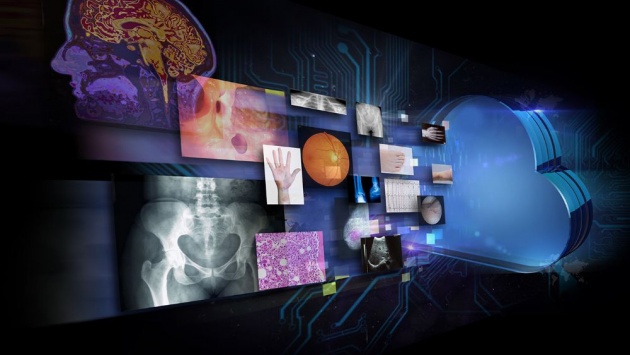
Cognitive Computer System - Photo credit: gepezz
They become more valuable for the company during the operation. And it is important that this accumulated experience is available for company employees and is constantly used in this way - repeatedly when it is necessary. The usual situation is that the specialist has left; his knowledge and experience has been lost for the company. With an embedded cognitive system, all the experience remains in the company and can be easily transferred to other specialists.
On A Final Note
Today, companies have to implement many systems to automate applications, storage, and analysis technologies in order to keep up with the high-tech race that has developed between businesses around the world.
Cognitive technologies are a combination of mathematical methods, algorithms and computer technologies that allow you to create smart machines. Machine learning, artificial intelligence, big data - today all these technologies are already actively used by large companies. But now in the field of intellectual programs, a new breakthrough is emerging - cognitive systems.
One of the first cognitive systems in the world was the IBM Watson supercomputer.
Watson demonstrates a real breakthrough in computer understanding of a natural language - a real language in which people communicate and exchange information, and not machine language specifically designed or coded for computers.
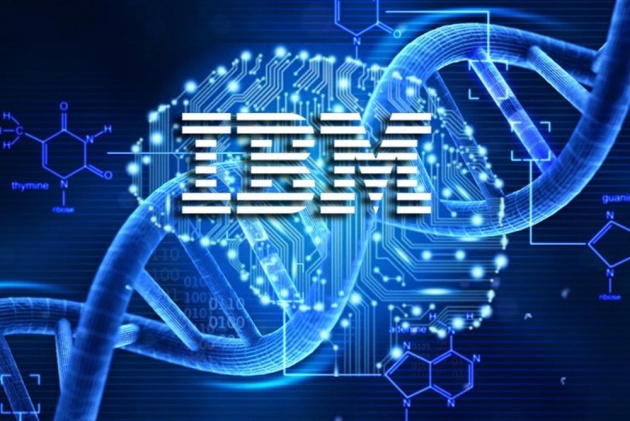
[Artificial Intelligence] How the IBM Watson Cognitive System Works - Photo credit: iberobike
Watson is a fully self-contained, standalone system - in the sense that it is not connected to the Internet. The technology used by Watson understands the question asked, analyzes millions of blocks of information stored in the internal memory, and provides the most correct answer, based on the real data found.
Watson delivers information quickly, efficiently, and in a way that is understandable to us, extracting the necessary knowledge from the vast amount of data in natural language that people meet daily.
I do not exactly know where and how much the technology will advance - time will tell. However, it is already noticeable that it has entered almost all areas of our life. It helps increase sales, increases security through biometrics, predicts, and diagnoses diseases, and does a lot more.
Cognitive computing is perhaps most unique in that it upends the established IT doctrine that a technology’s value diminishes over time; because cognitive systems improve as they learn, they actually become more valuable. This quality among others makes cognitive technology highly desirable for business, and many early adopters are leveraging the competitive advantage it affords.
Credit: ibm
I hope that thanks to the new cloud computing service we will see many new and exciting things in the near future.
HAVE FUN!
**********************************************************************************************
Thank you for stopping by and reading my blog
2019, All Rights Reserved.
You are very welcome to join bitLanders and share your valuable knowledge and opinion.
***********************************************************************************************



